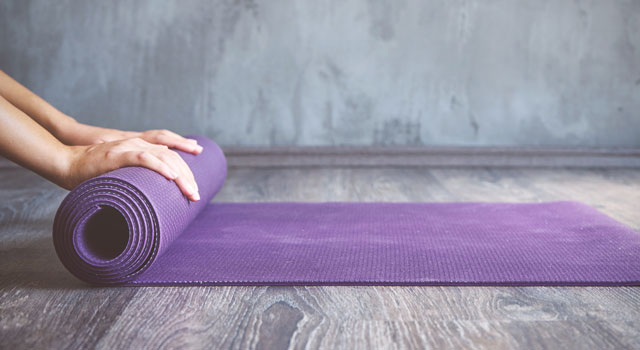Finding fun and happiness in sobriety is absolutely crucial for a successful recovery. Not only does finding holistic practices for sobriety help you enjoy life and form hobbies, but it also can treat lingering post-acute withdrawal symptoms that can lead to relapse or depression. Holistic practices are healthy activities that do not involve synthetic medication. They can be hobbies or they can be actual medical procedures. There are even “holistic medicines,” which usually means vitamins and other natural remedies. Some addiction treatment centers even have completely holistic approaches, meaning they don’t use medication at all. This might sound old fashioned, but holistic practices have proven to be extremely effective for people in recovery.
Many times, holistic practices in sobriety can significantly reduce or even cure post-acute withdrawal symptoms. Depression, anxiety, and insomnia are all extremely common for people in early recovery. Finding healthy hobbies, remedies, and coping skills will ensure long-term recovery and motivation. Here are 10 practices in sobriety that you can start doing today:
-
Meditation
Meditation is one of the most useful and practical techniques to learn. It’s easy and it can treat an array of psychological symptoms, like depression, anxiety, insomnia, lack of concentration, irritability, and mood swings. Meditation can also increase happiness and motivation. Starting the day with a short meditation can clear the mind and help start the day on a good foot. Ending the day with meditation can induce relaxation and lead to a good night’s sleep. Meditation can also be used at work or in stressful situations to slow racing thoughts. There are many clinical studies that show the effectiveness of meditation.
-
Yoga
Like meditation, yoga is one of the most popular holistic practices for sobriety. Yoga can treat the same psychological symptoms as meditation; sometimes to an even greater degree. Yoga is kind of like meditation but with a physical aspect thrown in. This can help with insomnia and restlessness.
-
Exercise
Exercise promotes healthy living and can even treat depression. There are many studies that prove the benefits exercise has on those suffering from depression. Having healthy routines increases the likelihood of long-term recovery. Exercise also is very effective in treating insomnia.
-
Art
Some addiction treatment centers use art therapy. Art can be one of the most rewarding holistic practices for sobriety. Art can be very relaxing. It slows racing thoughts and allows a person to express their feelings. For many people in recovery, it can be very hard to express their feelings. Art acts as an outlet while also being a fun hobby. As mentioned earlier, hobbies are extremely important for a happy recovery.

-
Nutrition
Nutrition is not only vital for health but can also be used as a great holistic practice for sobriety. Developing a clean diet, for some, is a way of life. Some people even practice “nutrition therapy”. “Put good in, get good out” is a philosophy of life for many people. Healthy diets can treat depression and irritability. Learning about nutrition can also become a rewarding hobby.
-
Acupuncture
Acupuncture is an ancient practice developed in China thousands of years ago. It is one of the most popular holistic practices for sobriety in many addiction treatment centers around the world. It is performed by placing tiny needles in pressure points all over the body. It is not painful and is barely noticeable. It is claimed to release toxins from the body and promote the flow of positive energy. It is used to treat many illnesses, depression, and anxiety.
-
Reading
Reading is another way to promote relaxation. It can help treat insomnia and restlessness. Reading also expands the mind and promotes cognitive health.
-
Journaling
Journaling is a great way to express one’s thoughts and emotions. It can reduce stress, anxiety, and depression. Journaling also gives a person a way to document progress. Recovery is all about growth, so writing down thought patterns can give a tangible way to monitor emotional growth. Journaling is another one of the holistic practices for sobriety that is recommended in almost every addiction treatment center.
-
Hiking
Hiking can be meditative and relaxing. It has proven to treat depression while also acting as a fun hobby. Hiking promotes health, determination, and motivation. New studies suggest that the happiest people in the world live in areas with vast opportunities for outdoor activities, like hiking, fishing, and camping.
-
Reiki
One of the most relaxing holistic practices in sobriety is called Reiki. Reiki is a form of group meditation that touching to “share” or channel positive energy to one another. Usually is involves a group of people with an instructor or a leader. The instructor guides the meditation and others are encouraged to stand up and share their energy with others by lightly placing their hands on or above another person. Everyone should try Reiki at least once, but sometimes it’s not for everyone (if you don’t like to be touched). Reiki circles can be found all over the world and are usually free.
Seeking Treatment for Alcoholism and Addiction
If you or a loved one has a problem with alcoholism or addiction and want to experience recovery in a thriving community with lots of people just like you, then call the professionals at Stout Street today at 303-321-2533. Our trained staff is standing by to take your call and help you in any way we can. We know how difficult of a decision this can be and we know what it takes to ensure you find your own personal path in recovery. You no longer have to do it alone, so give us a call today and find the happy and sober life you’ve always dreamed of.
